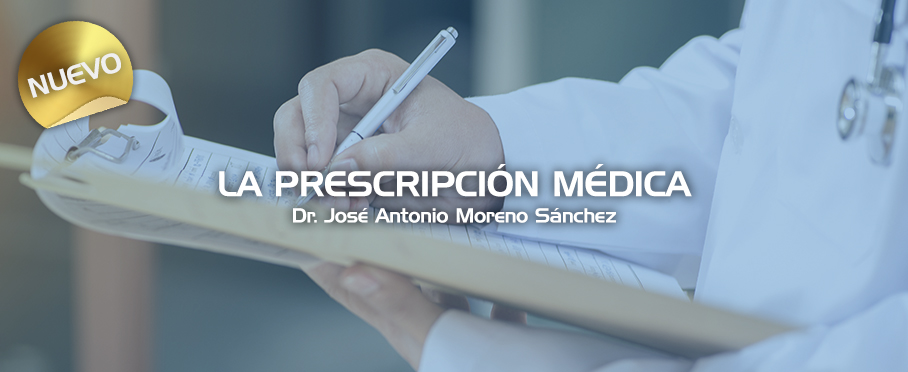MEDICAL PRESCRIPTION
– DR. JOSÉ ANTONIO MORENO SÁNCHEZ
PHYSICIAN GYNECO-OBSTETRICIAN
DEPUTY GENERAL DIRECTOR. COORDINATION OF FEDERAL REFERENCE HOSPITALS SECRETARIAT OF HEALTH. MEXICO
The professional practice of the doctor requires permanent updating, in accordance with the advances in medicine, which as a science, implies innovation and creativity and research to find new medicines, treatments and diagnostic techniques that alleviate human pain, restore lost health and allow the prevention of multiple diseases that afflict the community.
Medications in medical services are also considered as a way of measuring medical behavior. The use that prescribers make of this tool demonstrates knowledge, aptitudes, ethical and human values and even personality. With his work, the doctor carries out the diagnosis, prognosis and treatment of the disease. His professional activity is directed to the sick human being. For this reason, they must show unquestionable ethical behavior at all times. The responsibility to heal another requires consistent conduct.
One of the immediate consequences of the inappropriate prescription of medications, especially antibiotics, is the appearance of germs resistant to the safest and cheapest antimicrobials, with the consequent increase in morbidity and mortality of the population and the cost of services of health. Therefore, prescription problems are a determining factor in the quality of medical care.
Starting from the premise: There are no diseases but sick people, each case must be evaluated individually, considering the particularities of each patient, in this way we will arrive at the ideal prescription that offers greater benefits, not only in their general state of health. , also the one that causes the least expense, is easy to obtain, that does not cause secondary effects or at least that these are minimal and tolerable and that is oriented to achieve a prompt recovery.
The medical prescription must also not be modified by outsiders who, in order to sell products, arbitrarily replace what the doctor indicated and offer or suggest other types of products or substances with some similarity and generally inducing acceptance through marketing strategies. that end up in the sale of their products.
The intuitive or empirical prescription can generate mistrust and deteriorate the doctor-patient relationship, essential in the medical act. This, in addition, dilutes the professional’s responsibility by creating situations in which it is impossible to determine whether the prescribed medication or its substitute could have caused an undesirable reaction.
The doctor must have knowledge and assume responsibility for what happens due to what is done or omitted. Thus, before prescribing, the consideration that each patient requires what is specific to their health problem is imposed, never more and much less when the doctor deliberately promotes the unjustified use of a drug, influenced by interests or motivations of a personal nature. or due to insecurity disguised as “security”, when in reality what it does is promote sales, protect itself from possible non-conformity or underestimation by the patient, for “not prescribing”; The most common example is the unjustified prescription of antibiotics at the time of discharge in the immediate or late postoperative period without evidence of current infection, when one or more doses have already been administered prophylactically.
In this order of ideas, it is necessary to update knowledge in therapeutics, but also to consider less onerous options and possible or alternative non-pharmacological measures, that is, to medicate only when there is no other option. It is also convenient to question whether something is always prescribed so that the patient “does not go to look for another doctor” or to avoid the comment that “nothing was given in exchange for the money he paid for his consultation”. Also a prescription can serve to interrupt or replace the conversation between the doctor and the patient.
Today prescription requires knowledge and technique, methodology, recommendations and guidelines for action based on the best available evidence through the systematic search for answers to questions about specific problems.
In short, the fundamentals of medical prescription are: Rational scientific criteria and ethical principles, which include in balance: freedom of prescription, solidarity with the patient and awareness of their existence; respect for her autonomy, adequate indications and avoid unnecessary expenses; so to improve prescription it will be necessary to promote access to drug information systems, use of clinical guidelines and protocols; adequate prescription formats, sufficient and adequate training of doctors; incorporation of ethical criteria in all aspects, evaluation of the effectiveness and efficacy of medicines and better health regulations, this constitutes a great challenge in which each one of us involved, in part that corresponds to us, has a permanent and transcendental responsibility.





